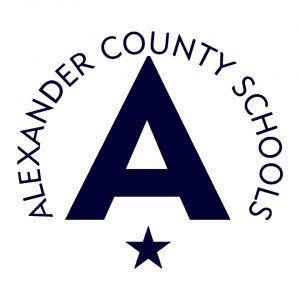 Denita Dowell-Reavis-Ed.D.
Denita Dowell-Reavis-Ed.D.
Alexander County Schools Communications Director
In an effort to help Alexander County students and families, the district will be able to offer free school breakfast and lunch for all students in the 2023-2024 school year. The school system has become a Community Eligibility Provision (CEP) district. This federal program allows school districts in low-income communities to apply for eligibility.
“It’s a wonderful thing for families because I know a lot of people are struggling right now with inflation, the cost of healthy food, and this will enable some of our most at-risk children to have healthy meals at school every day,” says Alexander County School Superintendent Dr. Jennifer Hefner.
The CEP status eliminates the work of collecting free/reduced lunch applications and allows child nutrition staff to focus more on serving tasty and nutritious meals.
“I personally approved every single application that came into my office, which took hours and hours and days and days. We will take no applications this year because all the schools are free. I approved them then my administrative assistant had to second-party review them, so this was days of labor that we will not have to be required to do this year,” says Child Nutrition Director Kathy Caudle.
Back in April, Caudle had to turn over information to the state for possible authorization. She received word in mid-July that the district was approved. Typically, CEP is offered to schools or districts with more than 40% free and reduced lunch rates. Between 38% (Alexander Early College) to 75% (Stony Point Elementary School) of students qualified for free or reduced lunch this past school year. This new authorization is the first time the entire county system has qualified for the free meals through CEP.
Caudle says the district can now meet children’s basic needs. She has seen the stress that hunger can put on children. “Breakfast is a real tell because when they come in, especially after a weekend, and they want everything that’s offered. I have never put a restriction on children getting all the fruits and vegetables they want,” says Caudle.
Taylorsville Elementary School teacher Michelle Robinson calls the qualification for free meals a blessing for students. “They get sleepy, distracted easily. I’ve always had snacks in my class that I’ve purchased personally. I try to stay away from the high sugar. They’re just not able to take in anything because of that loss of focus. It’s sad really” says Robinson.
For two years during the Covid pandemic, the federal government provided free meals for all students nationwide. After the pandemic, the free meals went away. Since then, at least six states have agreed to provide universal meals for students and 27 more states have similar proposals. In North Carolina, some elected leaders want the state to provide the meals. The bill’s sponsors say it would cost around 2% of the entire state budget to make free lunch and breakfast available to all NC children.
Without the free meals, debt within school systems piled up. Some larger districts needed more than $300,000 dollars to get out of the red. At the end of this past school year, Alexander County Schools lunch debt totaled $14,125 dollars. That’s down by half after people who call themselves “lunch angels” donated to help pay off the charges.
The charges grew because some families did not qualify for the program. The household income must be $51,000 or less for a family of four to receive free lunch. Other families simply didn’t apply for the program. The United States Department of Agriculture (USDA) operates CEP and says the program reduces the stigma for families who no longer must apply. USDA also says the program allows students to spend less time in line with the cashier, which gives children more time to eat lunch. The new CEP status allows the system and the schools to start the year with a clean slate.
All the meals will follow the USDA guidelines for healthy school meals. ACS uses local farms and orchards to help provide fresh foods. Children with allergies can receive special considerations for their lunch needs. Parents need to let the school know the allergies and get the appropriate paperwork on file.
In order for the district to keep the CEP status, the campuses must have enough students to eat school lunch. The Child Nutrition department will still pay for the products the staff uses and the department is partially reimbursed by the federal program. In this trial year of the program, a high participation rate will be critical to keep it.